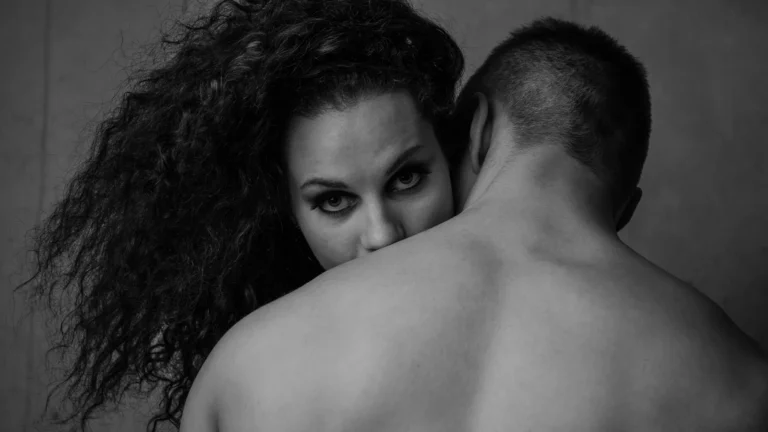Explore the key responsibilities of a Master in BDSM, focusing on caring for your submissive before, during, and after play.
When it comes to BDSM dynamics, the role of the Master carries a weight of responsibility, not just in terms of guiding a scene but also in caring for the submissive’s well-being before, during, and after play. Ensuring your submissive feels secure, respected, and cared for is the cornerstone of a healthy BDSM relationship. Let’s dive into what it means to be a responsible Master and how to maintain your submissive’s emotional and physical safety throughout every stage of the experience.
Understanding the Dynamic Between Master and Submissive
Before we explore the intricacies of care, it’s essential to understand the power dynamics at play. A BDSM relationship, especially one between a Master and submissive, is built on mutual trust and respect. While the submissive gives up control during scenes, the Master is responsible for guiding the experience, always keeping the submissive’s well-being front and center.
What It Means to Be a Master
Being a Master is about more than just control. It’s about leadership, care, and responsibility. You are not only leading your submissive through scenes but also ensuring that they feel safe, secure, and valued at every moment. The power exchange is consensual, and with it comes the responsibility of ensuring that the submissive’s limits are respected and their emotional and physical health is preserved.
Emotional Leadership
Your role isn’t just about giving commands; it’s about understanding your submissive on a deep, emotional level. You need to be emotionally available, recognizing their needs and fears. Whether they’re anxious about a new experience or feeling vulnerable after a scene, your emotional leadership helps guide them through these moments with care and empathy.
Setting the Scene Before Play
Preparation is crucial to creating a safe and enjoyable experience. Before engaging in any BDSM activity, it’s essential to establish a clear understanding between you and your submissive. This step ensures both parties know what to expect and are comfortable moving forward.
Consent and Boundaries
The first step in preparation is discussing consent. Consent is the foundation of all BDSM practices, and without it, no scene can begin. Both the Master and submissive must openly communicate their boundaries and agree on what’s acceptable and what’s not.
Understanding Hard and Soft Limits
When discussing boundaries, it’s important to distinguish between hard and soft limits. Hard limits are activities that are completely off-limits, while soft limits might be things that the submissive is open to trying with caution. As the Master, it’s your job to respect these limits at all times.
Pre-Scene Discussions
Before the scene starts, have an open conversation about desires, fears, and expectations. This isn’t just about logistics—it’s about ensuring both parties feel heard and understood.
Physical Preparation Before Play
Alongside emotional preparation, physical care is key. BDSM can be physically demanding, so taking care of your bodies beforehand is critical to avoid injury or discomfort during play.
Hydration and Rest
Hydration and rest are often overlooked but are vital components of preparation. Make sure both you and your submissive are well-hydrated and rested before starting any scene. Lack of either can lead to fatigue, dizziness, or even injury.
Environment Setup
A safe and controlled environment is a must. Whether you’re playing at home or elsewhere, make sure the space is free of hazards and provides enough room to move comfortably. You also need to ensure that any equipment or toys are clean, functional, and safe to use.
Caring for Your Submissive During Play
During the scene, your focus should be on maintaining a balance between control and care. BDSM play can be intense, so it’s essential to constantly monitor your submissive’s mental, emotional, and physical states.
Monitoring Body Language and Responses
While words are important, body language often tells you more. Pay attention to how your submissive responds physically. Are they tense, relaxed, or showing signs of discomfort? Understanding these cues helps you gauge how they’re feeling without them needing to verbally express it.
Safe Words and Communication
Even in the heat of the moment, communication is key. Establish a clear safe word system before the scene begins. Safe words allow the submissive to communicate when something isn’t right, and as the Master, it’s your responsibility to stop immediately when the word is used.
Aftercare: The Essential Step
Aftercare is perhaps one of the most critical parts of BDSM play, yet it’s often misunderstood or overlooked. After an intense scene, your submissive might feel physically or emotionally drained, and your role is to help them recover.
Emotional Aftercare
Emotional aftercare involves providing comfort and reassurance. Your submissive may experience a drop in adrenaline and endorphins after play, leading to feelings of vulnerability. This is when your emotional support is most needed.
Physical Aftercare
Physical care is equally important. Depending on the intensity of the play, your submissive might need rest, hydration, or even basic first aid.Physical care is equally important. Depending on the intensity of the play, your submissive might need rest, hydration, or even basic first aid.
Checking for Bruises or Injuries
It’s important to thoroughly check your submissive for any signs of bruising, cuts, or other injuries. Some scenes can be physically taxing, and your immediate attention can prevent further discomfort.
Reinforcing Trust and Affection
Aftercare also reinforces the bond between Master and submissive. By caring for your submissive after a scene, you show that their well-being is your priority, further strengthening the trust and affection between you.
Reflecting on the Scene Together
Once aftercare is complete, it’s helpful to reflect on the scene with your submissive. This can be a time for both of you to share what worked well and what could be improved.
Debriefing the Experience
Open and honest communication after a scene allows both of you to grow from the experience. Encouraging your submissive to share their thoughts and feelings can help ensure future scenes are even more enjoyable and fulfilling.
The Long-Term Role of the Master in a BDSM Relationship
Before diving into any BDSM activity, it’s important to have a pre-scene discussion. This is where you and your partner lay out expectations, establish safe words, and clarify limits. Think of it as planning a roadmap for your journey.
Supporting Personal Growth
A healthy BDSM relationship encourages mutual growth. As a Master, part of your role is to help your submissive grow emotionally and psychologically, providing guidance and support in all aspects of their life.
Recognizing Burnout or Fatigue
It’s important to recognize signs of burnout or fatigue in both yourself and your submissive. If either of you feels emotionally or physically drained, take a step back and reassess your dynamic to avoid pushing past healthy limits.
Conclusion
Caring for your submissive is an ongoing responsibility that extends far beyond individual scenes. From preparation to aftercare, every step is about ensuring their safety, comfort, and emotional well-being. As a Master, your role is to lead with empathy, respect, and care, making the experience fulfilling for both you and your submissive.
FAQs
At the end of the day, BDSM is about trust, mutual respect, and the shared thrill of exploration. By focusing on clear, honest communication and prioritizing consent, you and your partner can ensure that your experiences are not only safe and sane but deeply fulfilling.
What is the most important aspect of being a Master in a BDSM relationship?
The most important aspect is ensuring your submissive’s emotional and physical well-being. This means respecting boundaries, providing aftercare, and maintaining open communication.
Why is aftercare so crucial in BDSM play?
Aftercare helps the submissive recover emotionally and physically after intense scenes. It reinforces trust and provides the necessary comfort and support.
How can I improve communication with my submissive during play?
Using safe words and paying attention to non-verbal cues like body language can significantly improve communication.
What should I do if my submissive experiences burnout?
If your submissive is feeling emotionally or physically exhausted, it’s essential to take a break and reassess your dynamic to ensure you’re both comfortable moving forward.
How can I support my submissive’s personal growth outside of play?
Offer emotional support, encourage self-reflection, and be there for your submissive in all aspects of their life, not just during BDSM activities.





